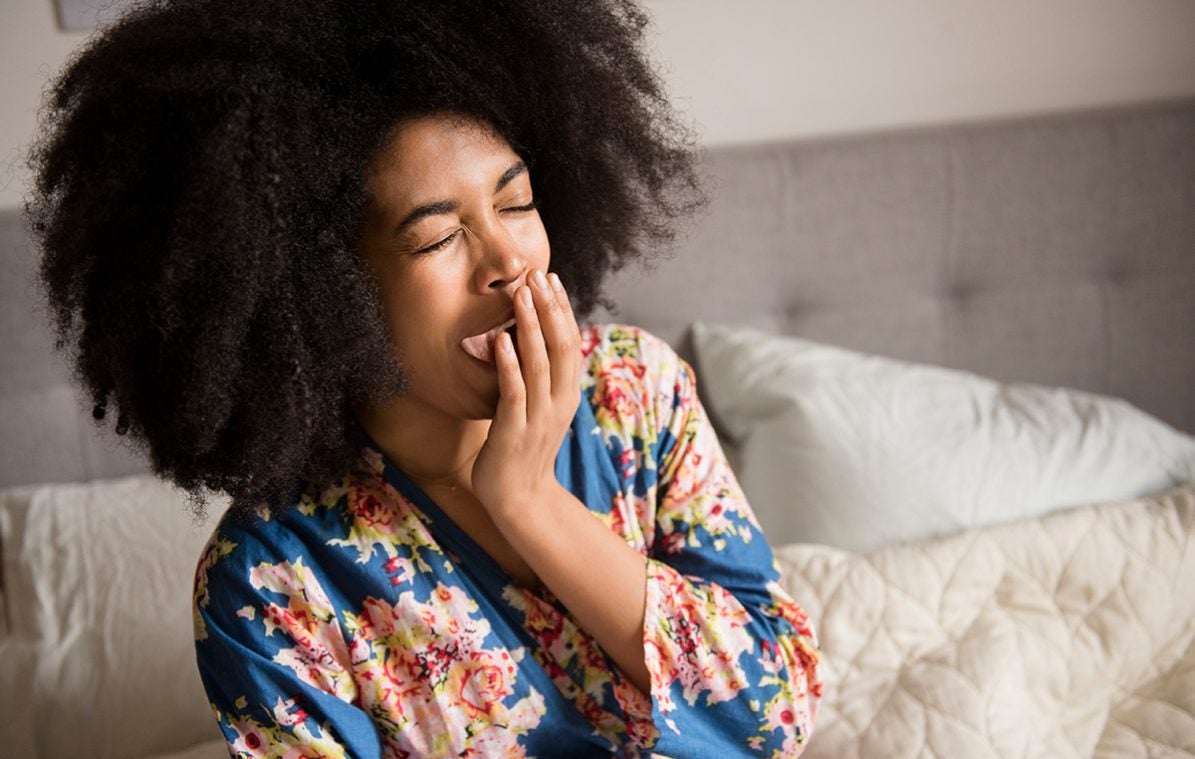Top Tips for Healthy Sleep
 ©Jamie-Gril
©Jamie-Gril
From reading a book that was too gripping to put down or attending a party that was way too fun to leave to yet again losing track of time scrolling through social media – these things happen to all of us. You don’t get enough sleep, but it’s nothing a big cup of coffee or a brisk walk in the fresh air can’t fix. According to a study by the University College of London, however, middle-aged people who regularly sleep for less than five hours a night can experience negative consequences for their health. Researchers found that this can increase the risk of developing at least two chronic illnesses.
The study, which appeared in the PLOS Medicine journal, analyzed the effect of sleep duration on the health of 7,000 women and men aged 50, 60 and 70. For participants aged 50 who regularly slept for just five hours, the risk of chronic illness increased by 20% over a 25-year follow-up period (compared to those who slept for up to seven hours). For all participants, the risk of multimorbidity (the occurrence of more than one illness) also increased by up to 40%.
Jo Whitmore, a senior cardiac nurse at the British Heart Foundation, points out that inadequate sleep can increase blood pressure and inflammation, which can, in turn, increase the risk of stroke and heart disease. Even though we tend to think these illnesses only affect older people and the youngest participants in the study were middle-aged, there are plenty of good reasons for everyone to get enough sleep. It helps us boost our immune systems, concentrate better, feel less moody, and recover quicker from intense workouts. And that last one is essential if you want to improve your performance and achieve your athletic goals. Sleep coach Christine Lenz from Berlin knows exactly what you should and shouldn’t do before going to bed:
Shift Down a Gear
Although it can be tempting to check your email or scroll through the latest memes before bedtime, don’t.
“If sources of information are constantly available, our brain can’t switch off.” emphasizes Lenz. “So it’s really important to ban phones, tablets, and e-readers from the bedroom.” Your surroundings also play an important role. Lenz recommends making the bedroom as dark as possible, or wearing a sleep mask and spritzing a relaxing fragrance such as lavender. Subconscious factors can play a vital role in good sleep.
Make Yourself Comfortable
If you find yourself tossing and turning at night, it could be less about you and more about your bed. Pillows can lose volume over time and your mattress can become uneven from body weight distribution. Materials can also wear out. So, if your bed no longer feels comfortable, keep these issues in mind and make some changes. “As a rule, people know how to make themselves comfortable, and that’s the most important thing,” says Lenz. “The body can get used to new circumstances so you should simply try things out to find out what works for you.”
Put Your Thoughts on Paper
“I encourage my patients to keep a sleep diary,” explains Lenz. “When they do, they often realize that they get more and better sleep than they actually thought. Putting pressure on ourselves and repeatedly telling ourselves ‘I have to go to sleep now’ has a negative effect on sleep.”
Other than keeping a sleep diary, she recommends relaxing. This is easier said than done of course, but breathing exercises are helpful. Even so, the necessary calm is often absent in difficult situations. Micromovements using your fingers and toes can relieve stress, as can distancing yourself from the expectation that you absolutely must sleep for eight hours a night. Everyone needs different amounts of time for recovery, but more than five hours seems worthwhile all round.
Learn more about this topic at foodspring:
- 5 great tricks for falling asleep straight away
- Why is getting a good nights sleep more important than the number of hours you sleep?
- How to get a good night’s sleep: 8 tips for starting your day off right
Sources for this article
We at foodspring use only high-quality sources, including peer-reviewed studies, to support the facts within our articles. Read our editorial policy to learn more about how we fact-check and keep our content accurate, reliable, and trustworthy.





























